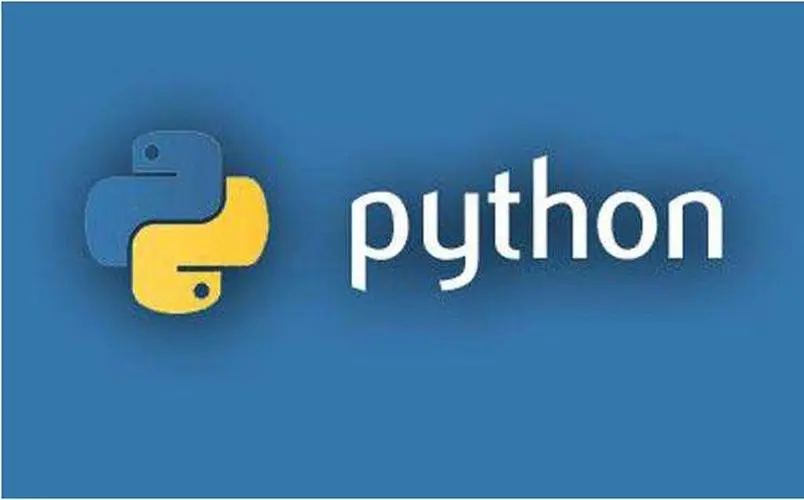
使用Python进行JSON反序列化为对象
json
适用于现代 C++ 的 JSON。
项目地址:https://gitcode.com/gh_mirrors/js/json
·

前言
JSON(JavaScript Object Notation)是一种广泛使用的数据交换格式。Python提供了强大的支持来处理JSON数据,包括将JSON反序列化为对象。本文将详细介绍如何使用Python进行JSON反序列化为对象,并涵盖一些高级用法和最佳实践。
什么是JSON反序列化?
JSON反序列化是将JSON格式的字符串转换为Python对象的过程。反序列化后的对象可以是Python内置的数据类型(如字典、列表、字符串、整数、浮点数、布尔值和None),也可以是自定义类的实例。
Python的json模块
Python内置的json模块提供了简单而强大的工具来处理JSON数据。常用的方法包括:
json.loads():将JSON字符串转换为Python对象。json.load():从文件读取JSON数据并转换为Python对象。
基础用法
- 将JSON字符串反序列化为Python字典
import json
json_str = '{"name": "John", "age": 30, "city": "New York"}'
data = json.loads(json_str)
print(data)
print(type(data))
输出:
{'name': 'John', 'age': 30, 'city': 'New York'}
<class 'dict'>
从文件读取并反序列化
import json
with open('data.json', 'r') as file:
data = json.load(file)
print(data)
将JSON反序列化为自定义对象
直接使用json.loads()或json.load()方法得到的通常是字典或列表。如果希望将JSON数据反序列化为自定义对象,可以使用一个简单的方法:提供一个自定义的对象钩子(object hook)。
自定义对象钩子
假设我们有一个表示用户的类:
class User:
def __init__(self, name, age, city):
self.name = name
self.age = age
self.city = city
def __repr__(self):
return f"User(name={self.name}, age={self.age}, city={self.city})"
然后,我们可以定义一个函数,将字典转换为User对象:
def user_decoder(obj):
return User(obj['name'], obj['age'], obj['city'])
使用object_hook参数,将JSON反序列化为自定义对象:
import json
json_str = '{"name": "John", "age": 30, "city": "New York"}'
user = json.loads(json_str, object_hook=user_decoder)
print(user)
print(type(user))
输出:
User(name=John, age=30, city=New York)
<class '__main__.User'>
高级用法:多层嵌套对象
对于复杂的JSON数据结构,例如嵌套对象,可以递归地使用object_hook。
class Address:
def __init__(self, street, city):
self.street = street
self.city = city
def __repr__(self):
return f"Address(street={self.street}, city={self.city})"
class User:
def __init__(self, name, age, address):
self.name = name
self.age = age
self.address = address
def __repr__(self):
return f"User(name={self.name}, age={self.age}, address={self.address})"
def user_decoder(obj):
if 'street' in obj and 'city' in obj:
return Address(obj['street'], obj['city'])
if 'name' in obj and 'age' in obj:
return User(obj['name'], obj['age'], obj['address'])
return obj
json_str = '''
{
"name": "John",
"age": 30,
"address": {
"street": "123 Main St",
"city": "New York"
}
}
'''
user = json.loads(json_str, object_hook=user_decoder)
print(user)
print(type(user))
输出:
User(name=John, age=30, address=Address(street=123 Main St, city=New York))
<class '__main__.User'>
处理未知字段
在实际应用中,JSON数据可能包含未知字段。为了处理这种情况,可以在自定义对象的初始化方法中使用**kwargs来捕获所有额外字段。
class User:
def __init__(self, name, age, city, **kwargs):
self.name = name
self.age = age
self.city = city
self.extra_fields = kwargs
def __repr__(self):
return f"User(name={self.name}, age={self.age}, city={self.city}, extra_fields={self.extra_fields})"
def user_decoder(obj):
return User(obj['name'], obj['age'], obj['city'])
json_str = '{"name": "John", "age": 30, "city": "New York", "email": "john@example.com"}'
user = json.loads(json_str, object_hook=user_decoder)
print(user)
输出:
User(name=John, age=30, city=New York, extra_fields={'email': 'john@example.com'})
总结
Python的json模块为处理JSON数据提供了简单而强大的工具。通过自定义对象钩子,我们可以将JSON数据反序列化为自定义对象,满足复杂数据结构的需求。掌握这些技巧将极大地提高处理JSON数据的效率和灵活性。

适用于现代 C++ 的 JSON。
最近提交(Master分支:3 个月前 )
f06604fc
* :page_facing_up: bump the copyright years
Signed-off-by: Niels Lohmann <mail@nlohmann.me>
* :page_facing_up: bump the copyright years
Signed-off-by: Niels Lohmann <mail@nlohmann.me>
* :page_facing_up: bump the copyright years
Signed-off-by: Niels Lohmann <niels.lohmann@gmail.com>
---------
Signed-off-by: Niels Lohmann <mail@nlohmann.me>
Signed-off-by: Niels Lohmann <niels.lohmann@gmail.com> 2 天前
d23291ba
* add a ci step for Json_Diagnostic_Positions
Signed-off-by: Harinath Nampally <harinath922@gmail.com>
* Update ci.cmake to address review comments
Signed-off-by: Harinath Nampally <harinath922@gmail.com>
* address review comment
Signed-off-by: Harinath Nampally <harinath922@gmail.com>
* fix typo in the comment
Signed-off-by: Harinath Nampally <harinath922@gmail.com>
* fix typos in ci.cmake
Signed-off-by: Harinath Nampally <harinath922@gmail.com>
* invoke the new ci step from ubuntu.yml
Signed-off-by: Harinath Nampally <harinath922@gmail.com>
* issue4561 - use diagnostic positions for exceptions
Signed-off-by: Harinath Nampally <harinath922@gmail.com>
* fix ci_test_documentation check
Signed-off-by: Harinath Nampally <harinath922@gmail.com>
* address review comments
Signed-off-by: Harinath Nampally <harinath922@gmail.com>
* fix ci check failures for unit-diagnostic-postions.cpp
Signed-off-by: Harinath Nampally <harinath922@gmail.com>
* improvements based on review comments
Signed-off-by: Harinath Nampally <harinath922@gmail.com>
* fix const correctness string
Signed-off-by: Harinath Nampally <harinath922@gmail.com>
* further refinements based on reviews
Signed-off-by: Harinath Nampally <harinath922@gmail.com>
* add one more test case for full coverage
Signed-off-by: Harinath Nampally <harinath922@gmail.com>
* ci check fix - add const
Signed-off-by: Harinath Nampally <harinath922@gmail.com>
* add unit tests for json_diagnostic_postions only
Signed-off-by: Harinath Nampally <harinath922@gmail.com>
* fix ci_test_diagnostics
Signed-off-by: Harinath Nampally <harinath922@gmail.com>
* fix ci_test_build_documentation check
Signed-off-by: Harinath Nampally <harinath922@gmail.com>
---------
Signed-off-by: Harinath Nampally <harinath922@gmail.com> 2 天前
更多推荐
 已为社区贡献15条内容
已为社区贡献15条内容










所有评论(0)